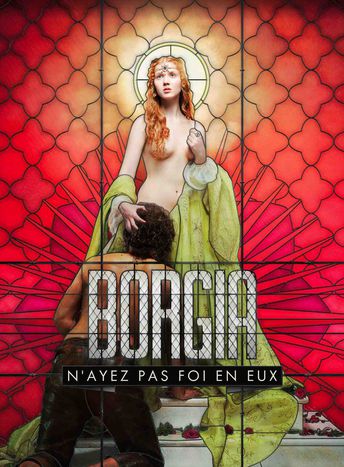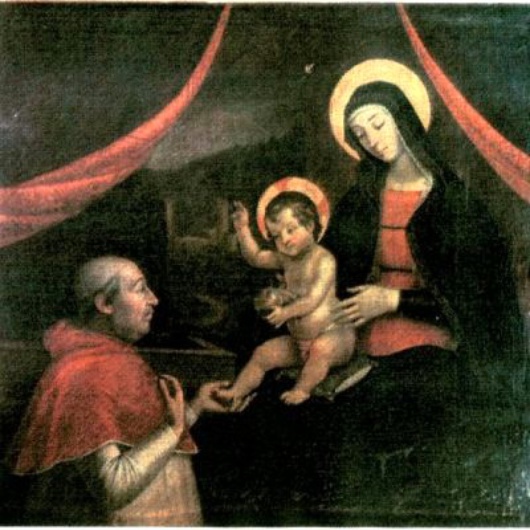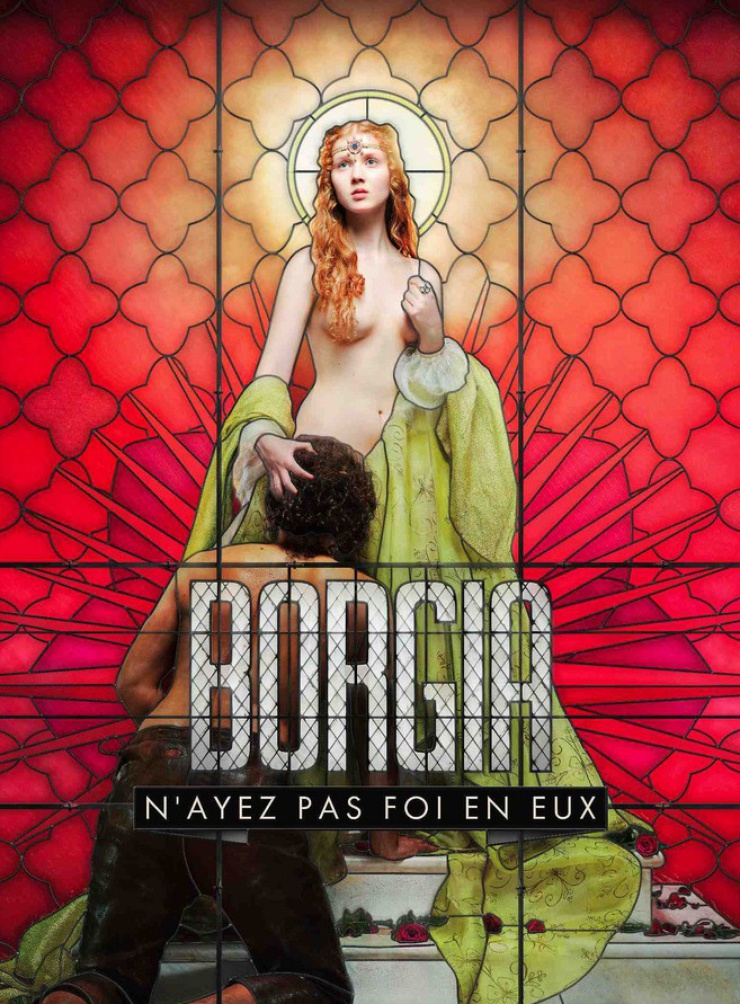
Most expensive EU TV production Borgia: outsiders from Spain in renaissance Italy
Published on
Translation by:
 ZoeBBee
ZoeBBee
The fifteenth century Italian crime family is the subject of a hit Franco-German TV series originally filmed in Prague and screened as of this summer in three European countries. We discuss reality and fiction with French Borgia expert Pol Bruno at his welcoming home on the Breton coast
By turns, Pol Bruno has been an assistant producer of feature films, a philosophy teacher and director of studies at a social science research institute; he has also extensively studied the history of the fifteenth century Spanish family rising up through the ranks of the vatican in renaissance Italy. Perfect man to discuss the new television series with then. Interview.
cafebabel.com: Pol, how did you become interested in the real-life Borgias?
Pol Bruno: In 1964 I came across the tragicomedy The Council of Love (1895) by the German writer Oskar Panizza. The way it describes with such joyful savagery the ribald celebrations at the vatican during the papacy of Alexander VI Borgia was a revelation. The fact that following its publication in 1895, Panizza was imprisoned in Munich for a year, had a particular impact on me. Panizza's information came mainly from the diary of Johannes Burchart, who was the master of ceremonies at the vatican under four popes, and is portrayed (Victor Schefé)in the show (not to be confused with'The Borgias' television seriesfrom the US, starring Jeremy Irons - ed).
cafebabel.com: What did you think about the series when it became a rating hit on French, German and Italian television stations Canal+, ZDF and Sky Italia this summer?
Pol Bruno: I watched it attentively and with interest, knowing that I was a rather unreceptive viewer. It was an experience in Brechtian distanciation (a stage technique intended to distance the audience from what is taking place on stage). I kept comparing the situations and the characters created by Tom Fontana (the series' screenwriter) with what I know about their historical existence. There are a number of psychological anachronisms about the characters. The series' protagonists speak and act in a way that is completely divorced from the social realities of their time. Lucrezia (played by Isolda Dychauk, the biological daughter of the Spanish cardinal, patriarch and future pope Cardinal Rodrigo Borgia played by John Dorman), could not have refused the husband that the pope chose for her. The interpersonal relationships of people living in the vatican palace in the sixteenth century did not work along the same lines as ours do today.
cafebabel.com: Are the characters otherwise in keeping with the historical reality?
Pol Bruno: Despite certain specific details that the screenwriters have made use of, I would say broadly, no. Do you think that Juan (Stanley Weber) is older than his brother Cesare (Mark Ryder)?
cafebabel.com: Yes...
Pol Bruno: Unlucky. In reality, Cesare Borgia, born in 1475, was older than Juan, who was born a year or two later. The rivalry between the two brothers was the result of a reversal of their birthrights. As the eldest, Cesare should have become a professional soldier and his younger brother should have dedicated his life to the church. Their father, Cardinal Rodrigo Borgia, decided to swap their respective paths through life.
 There were two, mutually exclusive, reasons why: knowing only too well the temporal power of the church, Alexander VI might have thought that this responsibility was more fitting to his ‘elder’ son Cesare. In becoming cardinal, Cesare followed in the footsteps of his father, just as Rodrigo Borgia had done with his uncle, Pope Callixtus III. The other possible reason is that at the point when he took his children away from Vanozza Cattanei (Rodrigo Borgia's mistress, as played by Assumpta Serna) to bring them to live at the vatican, Rodrigo Borgia expressed doubts about the paternity of the youngest, Joffre. In reality, if there were any doubts to be had about the paternity of his children, they pertained to his eldest rather than his youngest.
There were two, mutually exclusive, reasons why: knowing only too well the temporal power of the church, Alexander VI might have thought that this responsibility was more fitting to his ‘elder’ son Cesare. In becoming cardinal, Cesare followed in the footsteps of his father, just as Rodrigo Borgia had done with his uncle, Pope Callixtus III. The other possible reason is that at the point when he took his children away from Vanozza Cattanei (Rodrigo Borgia's mistress, as played by Assumpta Serna) to bring them to live at the vatican, Rodrigo Borgia expressed doubts about the paternity of the youngest, Joffre. In reality, if there were any doubts to be had about the paternity of his children, they pertained to his eldest rather than his youngest.
cafebabel.com: So does the television show need to be rewritten?

Pol Bruno: Absolutely not. The television series is fiction. It's good that it should stay that way. The reality was more fascinating than the fiction though. When Lucrezia's arranged marriage to Giovanni Sforza (Christian McKay) was annulled in 1498 because it had not been consummated, the page Pedro Caldès, known as Perotto, acted as go-between for the vatican and the convent. He and Lucrezia were also lovers, and she was pregnant when she went before the college of cardinals who were to grant the annulation of her marriage. Her ladies-in-waiting must have devised clothing that was roomy enough to conceal her stomach. When her brother Cesare learnt of her pregnancy, he pursued the page to the vatican. Perotto was slightly wounded when he was taking shelter at knees of the holy father, and his blood stained the pontiff's robes. He certainly did not die at the hands of the pope. Whatever really happened, his body was fished out of the Tiber some days later.
cafebabel.com: How exactly did the black legend of the Borgias come about?
Pol Bruno: Looking at this first season of the series, there's a lot that should be struck through. Juan did not kill his half-brother Pedro-Luis; he was around twelve years old at the time of Pedro-Luis' death. Lucrezia did not kill her brother Juan. It's possible that Cesare was implicated, but this was never proven. The Italian historian Maria Belloncirefutes the accusations of incest that surround Lucrezia. In contrast, Sancia d'Aragon (the illegitimate daughter of King Alfonso II of Naples), who was Joffre's wife in an arranged marriage, had a reputation as a nymphomaniac. It's not beyond the realms of possibility that she may, in her own particular way, have strengthened family ties.
cafebabel.com: Why so many unfounded accusations?
Pol Bruno: Xenophobia. The Borgias were foreigners, outsiders from Spain in renaissance Italy. The Romans called them 'Catalans'. The fact that they succeeded in founding a papal dynasty is down to the power of the Roman nobility. The French had seized control of the papacy when they transferred it to Avignon. Why would the 'Catalans' not look to take it to Valencia or Madrid?
Images: Lucrezia Borgia (cc) cattias, pope Alexandre VI (cc) Real Distan/ both courtesy of flickr/ videos: trailer (cc) DrGonzo2015; interview Tom Fontana (cc) AtlantiqueProd/both via youtube
Translated from La série Borgia : faut-il tout réécrire ?


